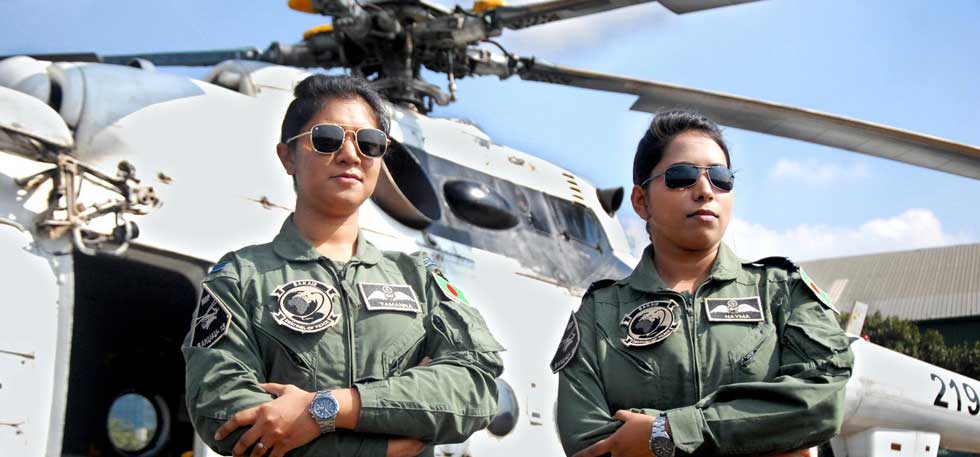Bangladesh, a country that carved its name as a sovereign nation on the world map, gained independence from Pakistan in 1971, as that country itself was known as East Pakistan prior to independence. During the nine-month-long genocidal atrocities, members of the Pakistani military and supporting paramilitary forces killed an estimated three million people, and around four million (debated) Bangladeshi women were subject to severe sexual harassment. Also as many as 10 million Bangladeshis were made refugees and fled to neighbouring India and more than 30 million people were internally displaced, which sent alarm signals to the international community to intervene and protect the civilian population.
The conflict began when West Pakistan (the present Pakistan) annulled the General Election held in 1970, where the Awami League won a landslide 167 out of the 169 constituencies in East Pakistan (the present Bangladesh) and became the majority party. Instead of handing over the power to the Awami League leader Sheikh Mujibur Rahman, West Pakistan military conducted a ‘searchlight’ operation against the people of East Pakistan on March 25th night in 1971.
Defending the sovereignty of the land, the ‘freedom fighters’ (Mukti Bahini) consisting of mainly the ordinary civilians with the help of military and the shadow backing of India, vowed to fight against the genocidal atrocities, violation of human rights and other oppression which eventually sparked the rise of the Bengali nationalist and self-determination movement. Indiscriminate attack on the civilians in under the guise of liberation, forced Bangladesh to vehemently ensure the safety of its people. Consequently ‘global peace’ which is one of the basic principles of her foreign policy.
Under the International Legal Framework, we had the support of the Fourth Geneva Convention in 1949, which protects civilians and ground-level peacekeepers ensured its protection. To maintain peace and security and to ‘control and resolve armed conflict’ at the ground level, the UN established an internationally acclaimed body called United Nations (hereinafter UN) Peacekeeping Operations. Usually, the peacekeepers are involved in peacekeeping duties, protecting civilians, deliver critical and life-saving medical aid to remote communities and facilitate and ensure human rights are safeguarded to the globally accepted norms. With the carefully drafted framework by the UN, they offer to monitor political processes and provide protection, even repair and design infrastructure in post-conflict situations. The purpose of the UN (embodied in the Charter), is to preserve international peace and security, developing friendly relationship among nations and promoting social equilibrium and human rights, and hence, it is a mandatory obligation that every nation is committed to contribute its efforts to maintain it.
Though some nations contribute towards the UN Peacekeeping Mission due to their national commitments, such as political, economic, military and humanitarian concerns as well as showing solidarity through friendly relations or in geo-strategic interests, however, different adaptations for the motivation of the country may have been presented as reasons. To cite an example, we could say India’s motivation has been derived from a desire to be a permanent member in the Security Council due to the recognition of its ‘great power’ in the global arena.
Being a country that was subject to severe suffering, torture, displacement and humanity crisis, Bangladesh as a nation and its people had the determination to maintain peace and security. Bangladesh had become one of the largest contributors of military and police to United Nations Peacekeeping entity. Initially in 1988, Bangladesh joined to serve in the UN Peacekeeping force involved in monitoring the ceasefire between Iran and Iraq, and currently 6693 (according to figures in May 2022), UN peacekeepers from Bangladesh are deployed in UNPKOs.
The Preamble to the Constitution of the People’s Republic of Bangladesh has embodied through its vow that “We may prosper in freedom and make our full contribution towards international peace and co-operation in keeping with the progressive aspirations of mankind”. Article 25 of the Constitution provides the constitutional policy of International Relations based on ‘the principles of respect for national sovereignty and equality, non-interference in the internal affairs of other countries, peaceful settlement of international disputes and respect for international law and the principles enunciated in the United Nations Charter’. For the Promotion of international peace, security and solidarity Bangladesh is always dedicated to dispatching its Army, Navy and the Air Force personnel on peacekeeping mission. Along with other obligations and motivations based on foreign policy to maintain its stand firmly on “Friendship to all, malice towards none” compelled Bangladesh to enhance its efforts towards maintaining peace, harmony and security.
Participating in peacekeeping duties, Bangladesh has created its self-image in contributing to maintain global peace and security and moreover, it has also cemented its position with an all-important platform for international diplomacy, boosting its foreign exchange reserves etc. Every nation should uphold its pledges made to the international community and continue to contribute and provide its assistance toward achieving global peace and harmony.
Mafruza Sultana
(Mafruza Sultana, PhD Candidate in International Law at South Asian (SAARC) University, New Delhi, India and Advocate Supreme Court of Bangladesh. She holds an LLM degree in International Law from the same institution. She has completed her graduation from Northern University of Bangladesh. She also hold PGD Course on Intellectual Property Rights and ‘International Law and Diplomacy’.Her (co-authored) last contribution of Maritime Terrorism has been published by brill (Baltic Yearbook of International Law, Vol.19). She also holds publication in Asian Journal of International Law (Vol. 10.2 & Vol.12). She also worked as Research Fellow, Centre for Genocide Studies, Liberation War Museum, Bangladesh, Project Supervisor of Latvian Maritime Academy, Latvia on “International Maritime Terrorism” & “Maritime Security of Small States: From the perspective of Coast Guard Development. )




